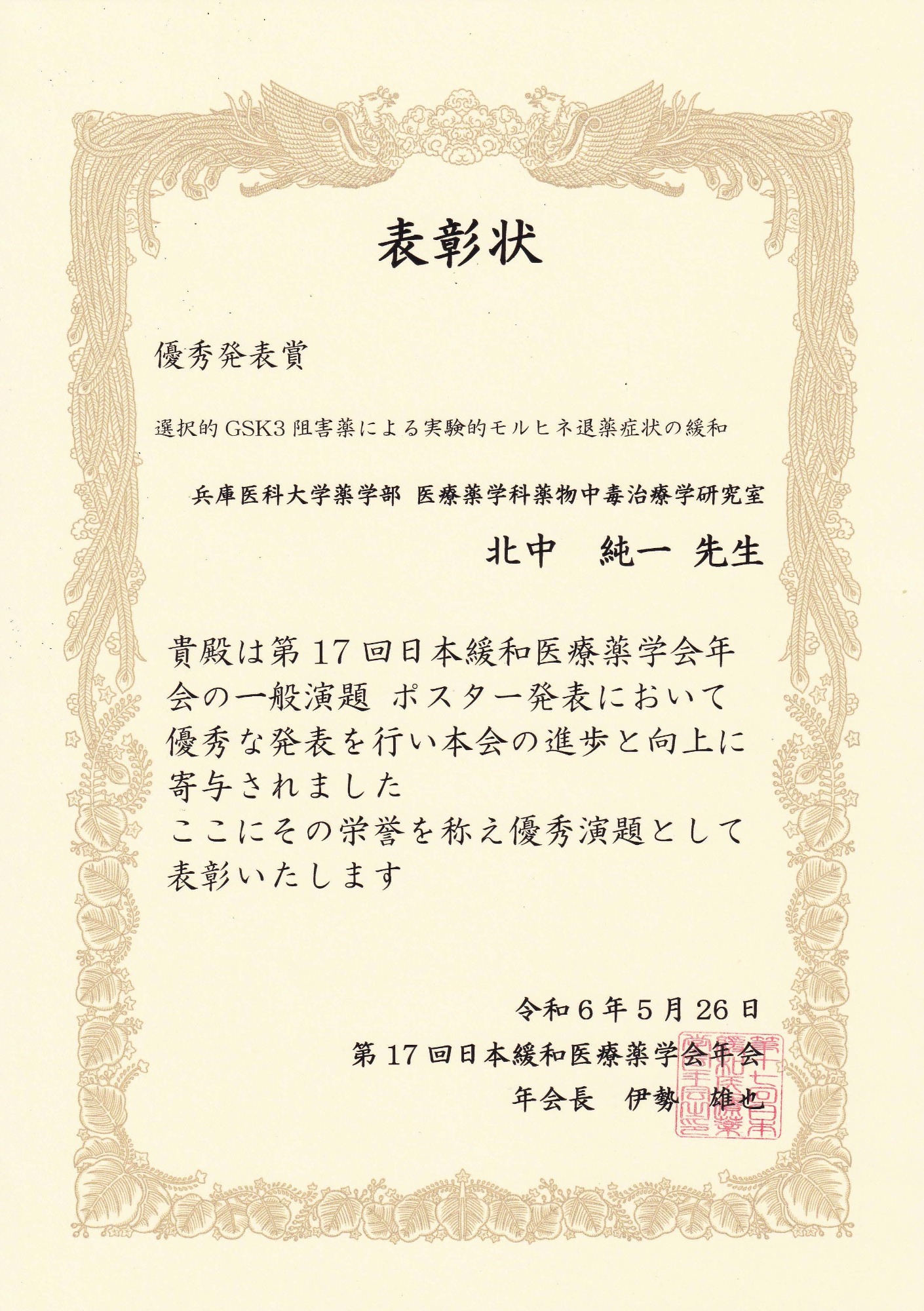Awards
The 17th Annual Meeting of the Japanese Society for Palliative Medicine and Pharmacotherapy, Poster Presentation Award (School of Pharmacy Department of Pharmacy Pharmacology Associate Professor Junichi Kitanaka )
Junichi Kitanaka, Associate Professor of the Department Department of Pharmacy Pharmacology won the Outstanding Presentation Award at the general poster presentation at the 17th Annual Meeting of the Japanese Society of Palliative Medicine, held from May 24th to 26th, 2024.
Please see below for details of the winning research.
Name of the awarding organization
Japanese Society of Pharmaceutical Palliative Care
Award-winning Abstract
A selective GSK3 inhibitor alleviates experimental morphine withdrawal symptoms
Author of the paper
Faculty of Pharmacy Department of Pharmacy Drug Addiction & Experimental Therapeutics Laboratory Junichi Kitanaka Associate Professor
Research Overview
We used a selective GSK3 inhibitor to examine whether it could alleviate morphine withdrawal symptoms induced by repeated morphine administration in mice. The results showed that it completely suppressed the head-shaking behavior, a characteristic withdrawal symptom, and also suppressed the Straub tail response induced by a single acute administration. These findings suggest that GSK3 is deeply involved in morphine withdrawal and other reactions.
Research Background
Morphine withdrawal symptoms are a serious problem in palliative care. However, no causal treatment has been established. Therefore, we focused on inhibitors of the intracellular enzyme glycogen synthase kinase 3 (GSK3), which has been shown to be deeply involved in various physiological functions in recent studies, and investigated whether such treatment could alleviate various reactions, including morphine-induced withdrawal symptoms.
Research Methods and Results
We investigated the effects of pretreatment with the selective GSK3 inhibitor raduviglusib (also known as CHIR-99021) on experimental morphine withdrawal symptoms (excessive bouncing and rearing, head shaking, and forelimb tremors) in mice and examined its usefulness in alleviating withdrawal symptoms. Results: (1) Pretreatment with raduviglusib completely eliminated head shaking. (2) In the control group, pretreatment with raduviglusib had no effect on behavior. (3) As a positive control, pretreatment with 10 mg/kg raduviglusib significantly suppressed the Straub tail response induced by a single dose of 30 mg/kg morphine in mice. These results suggest that enzyme inhibitors are effective in alleviating morphine withdrawal symptoms.
Future challenges
Because the safety margin for raduviglusib is narrow, we are exploring collaborative research to synthesize new, safer compounds, taking into account the structure-activity relationship of the molecule. We will also verify the inhibitory effect of administration after the onset of symptoms, rather than pre-administration.
Source of research funds etc.
Grant-in-Aid for Scientific Research (Foundation C) (21K06591)
